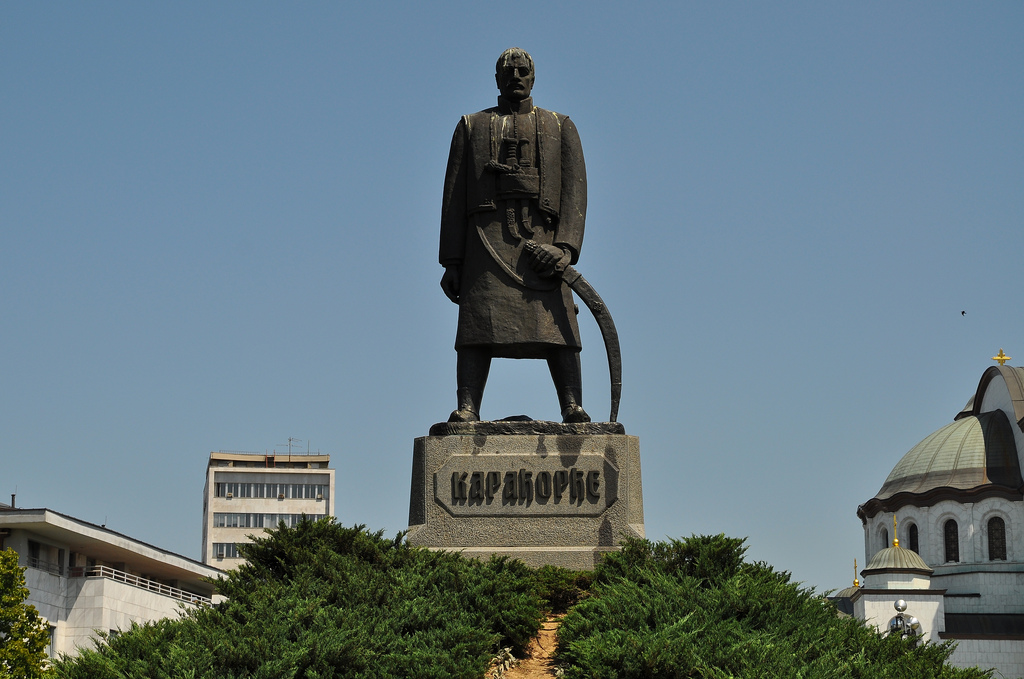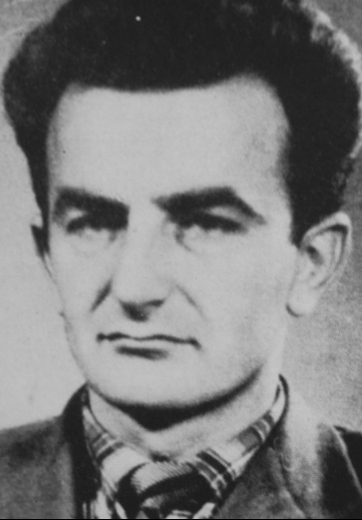|
Novak Kilibarda
Novak Kilibarda, PhD ( cyrl, Новак Килибарда; born 7 January 1934) is a Montenegrin former politician, professor, literary historian and writer. Early life and education Kilibarda was born on 7 January 1934 in the village of Tupan in Banjani, Nikšić. His father Gavrilo was a farmer, his mother Plana ( ''née'' Vukalović) was a housewife. He attended elementary school in the village of Velimlje and high school in Nikšić. Kilibarda graduated from the University of Belgrade Faculty of Philology in 1958, with a degree in Yugoslav literature. After graduating, he taught at the Višegrad Gymnasium from 1959 to 1961. He became a magister in 1964, and completed his doctorate in 1969 with the topic ''Bogoljub Petranović as a Collector of Folk Songs'' ("Bogoljub Petranović kao sakupljač narodnih pesama"). Kilibarda taught at the Pedagogical Academy from 1963, even serving as its Director. The school was later to become the Faculty of Philosophy, and was merged wi ... [...More Info...] [...Related Items...] OR: [Wikipedia] [Google] [Baidu] |
Kingdom Of Yugoslavia
The Kingdom of Yugoslavia ( sh-Latn-Cyrl, separator=" / ", Kraljevina Jugoslavija, Краљевина Југославија; sl, Kraljevina Jugoslavija) was a state in Southeast and Central Europe that existed from 1918 until 1941. From 1918 to 1929, it was officially called the Kingdom of Serbs, Croats and Slovenes ( sh-Latn-Cyrl, separator=" / ", Kraljevina Srba, Hrvata i Slovenaca, Краљевина Срба, Хрвата и Словенаца; sl, Kraljevina Srbov, Hrvatov in Slovencev), but the term "Yugoslavia" (literally "Land of South Slavs") was its colloquial name due to its origins."Kraljevina Jugoslavija! Novi naziv naše države. No, mi smo itak med seboj vedno dejali Jugoslavija, četudi je bilo na vseh uradnih listih Kraljevina Srbov, Hrvatov in Slovencev. In tudi drugi narodi, kakor Nemci in Francozi, so pisali že prej v svojih listih mnogo o Jugoslaviji. 3. oktobra, ko je kralj Aleksander podpisal "Zakon o nazivu in razdelitvi kraljevine na upravna območja ... [...More Info...] [...Related Items...] OR: [Wikipedia] [Google] [Baidu] |
Faculty Of Philosophy, University Of Montenegro
The University of Montenegro Faculty of Philosophy ( Montenegrin: Filozofski fakultet Univerziteta Crne Gore ''Филозофски факултет Универзитета Црне Горе'') is one of the educational institutions of the University of Montenegro. The building is located in Nikšić, close to the city center. History The Faculty's history can be traced back to 1947, when the Pedagogical College ( Montenegrin: Viša pedagoška škola ''Виша педагошка школа'') was founded in Cetinje. The College was moved to Nikšić in 1963, and renamed the Pedagogical Academy (Pedagoška akademija ''Педагошка академија''). Between 1977 and 1988, the school was called the Teaching Faculty (Nastavnički fakultet ''Наставнички факултет''). Since 1988, the Faculty is known by its current name. It officially became part of the University of Montenegro on April 29, 1974, when the ''Agreement on Association into the University o ... [...More Info...] [...Related Items...] OR: [Wikipedia] [Google] [Baidu] |
Slavko Perović
Slavko Perović (Montenegrin Cyrillic: Славко Перовић; born 2 August 1954) is a Montenegrin politician. He is best known as a co-founder and former leader of Liberal Alliance of Montenegro (LSCG), former party that was fighting for independence of Montenegro and promoting liberalism in Montenegro throughout the 1990s and early 2000s. Early life Perović was born and raised in Cetinje, People's Republic of Montenegro, Federal People's Republic of Yugoslavia to father Vukašin Perović, a pre-War journalist and Partisan, who also published five novels and poema, and mother Zoraida (b. Nakićenović) from Kuti (Herceg Novi), a housewife. He graduated from Veljko Vlahović University's Faculty of Law in 1978 in Titograd. He passed the court attorney exam in Belgrade, Socialist Republic of Serbia a year later, and earned his Master's Degree at the International University Centre in Dubrovnik, Socialist Republic of Croatia. As a student, he was active in a number of socia ... [...More Info...] [...Related Items...] OR: [Wikipedia] [Google] [Baidu] |
Liberal Alliance Of Montenegro
Liberal Alliance of Montenegro ( cnr, italic=no, Liberalni savez Crne Gore - LSCG; Либерални савез Црне Горе - ЛСЦГ) was a Montenegrin separatist, liberal and anti-war political party, active between 1990 and 2005. The Liberal Alliance was a full member of the Liberal International from 1994 until the party's dissolution in 2005. History The LSCG was the first political party to advocate an independent Montenegro during the Yugoslav Wars period, and remained a strong supporter of the idea of independence throughout its existence. It was also one of the only two parties, alongside the Social Democratic Party, which openly opposed the Montenegrin involvement in the War in Croatia and the shelling of Dubrovnik in 1991. Despite advocating Montenegrin nationalism and thus pursuing separatist policies, LSCG was a strictly pacifist party, opting for democratic means in its political activity. It also openly supported the restoration of the Montenegrin la ... [...More Info...] [...Related Items...] OR: [Wikipedia] [Google] [Baidu] |
Slobodan Milošević
Slobodan Milošević (, ; 20 August 1941 – 11 March 2006) was a Yugoslav and Serbian politician who was the president of Serbia within Yugoslavia from 1989 to 1997 (originally the Socialist Republic of Serbia, a constituent republic of the Socialist Federal Republic of Yugoslavia, from 1989 to 1992) and president of the Federal Republic of Yugoslavia from 1997 to 2000. Formerly a high-ranking member of the League of Communists of Serbia (SKS) during the 1980s, he led the Socialist Party of Serbia from its foundation in 1990 until 2003. Born in Požarevac, he studied law at the University of Belgrade Faculty of Law and joined the League of Socialist Youth of Yugoslavia as a student. During the 1960s he served as an advisor to mayor of Belgrade Branko Pešić, and was later appointed chairman of Tehnogas and Beobanka, roles which he served until the 1980s. Milošević rose to power in 1987 by promoting populist and nationalist views, arguing for the reduction of ... [...More Info...] [...Related Items...] OR: [Wikipedia] [Google] [Baidu] |
Kingdom Of Montenegro
The Kingdom of Montenegro ( sr, Краљевина Црна Горa, Kraljevina Crna Gora) was a monarchy in southeastern Europe, present-day Montenegro, during the tumultuous period of time on the Balkan Peninsula leading up to and during World War I. Officially it was a constitutional monarchy, but absolutist in practice. On 28 November 1918, following the end of World War I, with the Montenegrin government still in exile, the Podgorica Assembly proclaimed unification with the Kingdom of Serbia, which itself was merged into the Kingdom of Serbs, Croats and Slovenes three days later, on 1 December 1918. This unification with Serbia would last, through various successor states, for almost 88 years, until finally coming to an end in 2006. History Prince Nicholas of Montenegro proclaimed the Kingdom of Montenegro in Cetinje on 28 August 1910, elevating the country from the rank of Principality. King Nicholas I had ruled the country as Prince since 1860, and had initiated se ... [...More Info...] [...Related Items...] OR: [Wikipedia] [Google] [Baidu] |
People's Party (Montenegro, 1906)
The People's Party ( sr, Народна странка, Narodna stranka, abbr. НС/ NS), also known as the Klubaši or the Narodnjaci, was a political party in the Principality of Montenegro and the Kingdom of Montenegro. The party represented the opposition to King Nikola I. The People's Party main political goal was the dethroning of the Petrović-Njegoš dynasty and the unification of Montenegro and Serbia. The founder of the party was Šako Petrović-Njegoš, Nikola I's cousin, other notable founding members of the party included Andrija Radović, Marko Radulović and Mihailo Ivanović. As a response to the formation of the People's Party in 1907, Petrović-Njegoš dynasty loyalists organised themselves into the True People's Party, also known as the ''Rightists''. Background The Assembly of Montenegro was formed by the 1905 Constitution. The People's Party was first formed in 1906, when 27 deputies of the Assembly of Montenegro (out of 60, elected in 1905 election for the ... [...More Info...] [...Related Items...] OR: [Wikipedia] [Google] [Baidu] |
SR Montenegro
The Socialist Republic of Montenegro ( sh-Latn-Cyrl, separator=" / ", Socijalistička Republika Crna Gora, Социјалистичка Република Црна Гора), commonly referred to as Socialist Montenegro or simply Montenegro, was one of the six republics forming the Socialist Federal Republic of Yugoslavia and the nation state of the Montenegrins. It is a predecessor of the modern-day Montenegro. Prior to its formation, Montenegro was part of Zeta banovina administrative unit of Kingdom of Yugoslavia. History On 7 July 1963, the ''People's Republic of Montenegro'' (Serbo-Croatian: ''Narodna Republika Crna Gora'' / Народна Република Црна Гора) was renamed the "Socialist Republic of Montenegro" (a change ratified both by the Federal Constitution and the newly created Montenegrin Constitution in 1963) with Serbo-Croatian as the official language. In 1991, as the League of Communists of Montenegro changed its name to Democratic Party of Soc ... [...More Info...] [...Related Items...] OR: [Wikipedia] [Google] [Baidu] |
Serbian Nationalism
Serbian nationalism asserts that Serbs are a nation and promotes the cultural and political unity of Serbs. It is an ethnic nationalism, originally arising in the context of the general rise of nationalism in the Balkans under Ottoman rule, under the influence of Serbian linguist Vuk Stefanović Karadžić and Serbian statesman Ilija Garašanin. Serbian nationalism was an important factor during the Balkan Wars which contributed to the decline of the Ottoman Empire, during and after World War I when it contributed to the dissolution of the Austro-Hungarian Empire, and again during the breakup of Yugoslavia and the Yugoslav Wars of the 1990s. After 1878, Serbian nationalists merged their goals with those of Yugoslavists, and emulated the Piedmont's leading role in the ''Risorgimento'' of Italy, by claiming that Serbia sought not only to unite all Serbs in one state, but that Serbia intended to be a South Slavic Piedmont that would unite all South Slavs in one state known as Y ... [...More Info...] [...Related Items...] OR: [Wikipedia] [Google] [Baidu] |
Serb Nationalist
Serbian nationalism asserts that Serbs are a nation and promotes the cultural and political unity of Serbs. It is an ethnic nationalism, originally arising in the context of the general rise of nationalism in the Balkans under Ottoman rule, under the influence of Serbian linguist Vuk Stefanović Karadžić and Serbian statesman Ilija Garašanin. Serbian nationalism was an important factor during the Balkan Wars which contributed to the decline of the Ottoman Empire, during and after World War I when it contributed to the dissolution of the Austro-Hungarian Empire, and again during the breakup of Yugoslavia and the Yugoslav Wars of the 1990s. After 1878, Serbian nationalists merged their goals with those of Yugoslavists, and emulated the Piedmont's leading role in the ''Risorgimento'' of Italy, by claiming that Serbia sought not only to unite all Serbs in one state, but that Serbia intended to be a South Slavic Piedmont that would unite all South Slavs in one state known as Y ... [...More Info...] [...Related Items...] OR: [Wikipedia] [Google] [Baidu] |
Anti-communist
Anti-communism is political and ideological opposition to communism. Organized anti-communism developed after the 1917 October Revolution in the Russian Empire, and it reached global dimensions during the Cold War, when the United States and the Soviet Union engaged in an intense rivalry. Anti-communism has been an element of movements which hold many different political positions, including conservatism, fascism, liberalism, nationalism, social democracy, libertarianism, or the anti-Stalinist left. Anti-communism has also been expressed in philosophy, by several religious groups, and in literature. Some well-known proponents of anti-communism are former communists. Anti-communism has also been prominent among movements resisting communist governance. The first organization which was specifically dedicated to opposing communism was the Russian White movement which fought in the Russian Civil War starting in 1918 against the recently established Bolshevik government. The ... [...More Info...] [...Related Items...] OR: [Wikipedia] [Google] [Baidu] |
Veljko Milatović
Veljko Milatović ( Serbo-Croat Cyrillic: Вељко Милатовић; 5 December 1921 – 19 October 2004) was a Montenegrin Communist partisan, politician, statesman serving once as the Speaker and once as President.History Parliament of Montenegro Biography Milatović was born on 5 December 1921 in , (later ). He ...[...More Info...] [...Related Items...] OR: [Wikipedia] [Google] [Baidu] |





